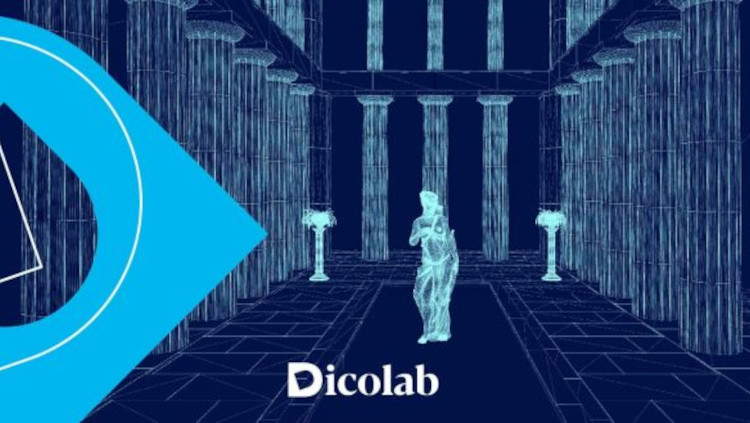Culture and digital: Dicolab, the training system for the digitization of cultural heritage, is born
Dicolab is born. Culture to Digital, the training system created and curated by the Foundation School of Cultural Heritage and Activities and promoted by the Ministry of Culture - Digital Library as part of the PNRR Culture 4.0. A project that intends, in order to meet the challenge of digital transformation in the cultural sphere and support innovation in the sector at the national level, to deploy diversified actions according to a modular and scalable format thanks to an innovative model of blended learning, which provides free, highly qualified and certified training, with in-presence and online activities.
Dicolab. Culture to Digital fits within the National Plan for the Digitization of Cultural Heritage, part of the PNRR Culture 4.0 entrusted to the Digital Library of the Ministry of Culture. In fact, the Plan entrusts training with the task of improving and updating the digital skills essential to increase the value of cultural heritage in its new digital dimension.
“The National Digitization Plan for Cultural Heritage (PND), which the Ministry of Culture is carrying out, constitutes the strategic context for the realization of the objectives of the PNRR,” said Angelantonio Orlando, director general of the Mission Unit for the Implementation of the PNRR of the Ministry of Culture. “In this context, the project Dicolab. Culture to Digital takes on strategic relevance as the strengthening of digital skills is an enabling factor for professionals and practitioners who, thanks to the training system, will be able to make the best use of the new tools made available to them by the PNRR’s many lines of intervention.”
The goal is to reach a large audience of users who will have to complete 40,000 training units by June 2026.
“It is a project of broad scope and long vision that will help create an original cultural ecosystem aimed at meeting the challenges and seizing the opportunities of the digital transformation process of cultural heritage,” said Vincenzo Trione, president of the Foundation School of Cultural Heritage and Activities.
In just over three years, therefore, the Dicolab project. Culture to Digital aims to generate a direct and concrete impact on the Italian cultural system. Through the creation of 100 original training products, the provision of 400 hours of workshop activities and the involvement of more than 300 teachers.
The processes of listening, engagement and territorial animation of the initiatives will be activated through a network that may include up to 10 Hubs spread throughout Italy, to mobilize skills, activate cultural institutions and involve businesses, professionals and local realities. A path already launched in close dialogue with central and local governments, regions, cultural organizations and institutions, and businesses in the sector.
“With Dicolab. Culture to Digital we make available the experience gained by the School of Cultural Heritage and Activities, in training and research in the cultural field,” added Alessandra Vittorini, director of the Foundation School of Cultural Heritage and Activities. “The strategic challenge of digital transformation cannot advance without adequate intervention in the skills of practitioners. To act on the change of institutions, organizations and the whole system.”
The project is intended to be an evolving laboratory with a rich training program organized into thematic areas and numerous tracks, on topics ranging from Digital Thinking and Soft Skills for Digital Transformation to User-Oriented Production and Management, Use and Sharing of Cultural Heritage, Governance of Digital Transformation, Research and Innovation in the Cultural Sector, and Supporting Processes for Digital Transformation of Cultural Organizations.
The target audience the project intends to address is broad and diverse and includes the entire community of professionals and organizations in the cultural system: from the staff of the Ministry of Culture (involved with the collaboration of the General Directorate of Education, Research and Cultural Institutions) and other public administrations, to businesses and organizations in the cultural sector, academia (undergraduates, postgraduates, doctoral students and researchers), cultural institutions, both public and private, practitioners, specialists and experts in the field.
Upon completion of each training unit, each participant will be issued with a certification in the form of an open badge, a standard used at the European level that attests, in a transparent and verifiable manner, not only to the training content and tools, but also to the skills acquired.
Through the Fondazione Scuola dei beni e attività culturali’s new e-learning platform(fad.fondazionescuolapatrimonio.it), users will have free access to the many multimedia resources released progressively and will be able to enroll in in-person training activities. The first training content is already online and covers the key topics for dealing with the challenges of the digital transformation of the cultural sector: from communication to listening processes, from data management to organizational change management.
By January 2024, 20 multimedia courses, 4 webinar cycles, a seminar, an 8-episode podcast, and 2 series of video pills will be available; a rich set of training products ranging from project management to human-centered design, from digital archives to the crucial topic of law and digitization.
 |
| Culture and digital: Dicolab, the training system for the digitization of cultural heritage, is born |
Warning: the translation into English of the original Italian article was created using automatic tools. We undertake to review all articles, but we do not guarantee the total absence of inaccuracies in the translation due to the program. You can find the original by clicking on the ITA button. If you find any mistake,please contact us.





























